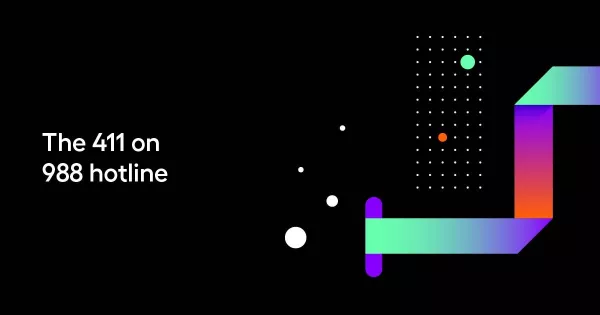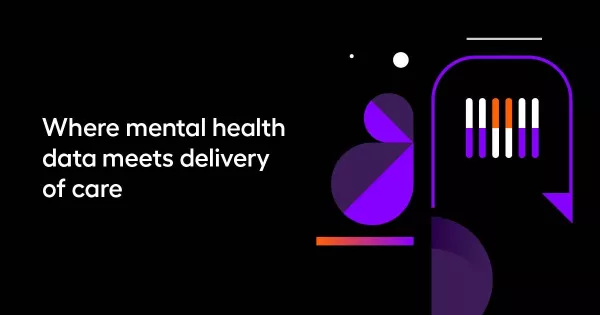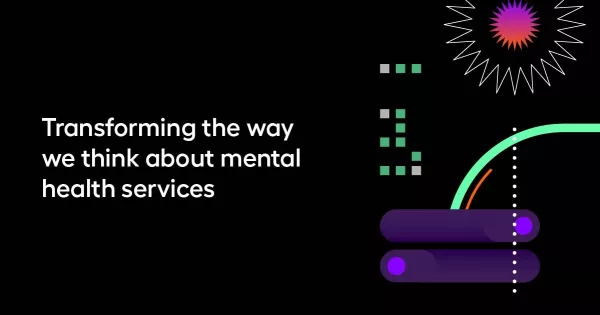How the 988 hotline will revolutionize mental healthcare
Who the new federally-funded 988 hotline will help, how we can measure its success, and why mental healthcare matters across the board
Arcadia CMO Dr. Rich Parker and Innovative Management Solutions NY CIO Elise Kohl-Grant know the intersections of physical and mental healthcare firsthand, and they’re excited by the possibilities the new 988 hotline.
As a hospice physician and a NAMI volunteer, Dr. Parker navigates between both fields. Kohl-Grant helps NY State leverage new technologies and platforms to serve a giant patient base, strengthening healthcare services through better processes and robust data.
So when the news of the 988 hotline emerged last summer, both experts immediately took interest. After all, whole-person care is at the heart of Arcadia’s and IMSNY’s respective missions, and mental health is linked to a person’s physical health.
Here, they weigh in on this new program, where it might succeed or fall short, and how data will play an integral role in its success.

The 411 on 988 hotline
The 988 hotline is a 911 alternative specifically for mental health crises. Someone could dial for themselves or call on another person’s behalf, and it’s a direct route to mental health services. Many cities and states already operate hotlines, but this feature will exist nationwide in an easy-to-remember format that eliminates friction for access to mental healthcare.
As a crisis takes place, it can be overwhelming to parse through options. This line will act as a connector to the most relevant existing resources. That could be telephone counseling, a nearby emergency department, or any number of alternatives for mental healthcare. The point is that emergency personnel (like police or firefighters) don’t need to arrive on the scene.
Mental healthcare without conflict
Avoiding unnecessary interaction with law enforcement is a major feature, especially in the wake of recent incidents between police and people in crisis. Dr. Parker recalls Michael Conlon, a 28-year-old who lived in a nearby town and displayed violent behavior during an episode at a corner store. When the shop owner called 911 after a failed attempt to intercede, a police chase ensued, and the story ends with Conlon's death.
"We all ask, 'Could it have been different?'," says Dr. Parker, "Most of these calls go to the wrong place and police don’t usually get adequate training for mental health problems."
"We have become overly dependent on police officers to take control of situations that are outside of their purview," Kohl-Grant agrees.
A step towards solving the mental healthcare crisis
The 988 hotline marks a shift in approach to a national catastrophe. Put simply: what's been done before for mental healthcare isn't working. Suicides rates hover around 45,000 per year, and drug overdoses have reached nearly 100,000 annually.
For a program so significant for mental health services, it was announced with minimal fanfare. This federally sanctioned, legislature-funded initiative is slated to start in July 2022, but a lot of people in and outside the medical community are only just learning that it exists. With a budget of just $278 million nationally, it’ll be a heavy lift for such dire need, and mental health data will be a critical way to gauge its success.

Where mental health data meets delivery of care and the 988 hotline
One of the key challenges the 988 hotline presents is how to uniformly store and interpret mental health data. Where an EKG provides a graphed read-out, or a blood test reveals a quantity of platelets, many mental health providers will jot down notes in an unstructured, freeform style.
Elise and her team are working on standardizing that information now, so that by the time the 988 hotline goes live, a patient's history of mental health data will be legible across dashboards and networks. IMSNY works with Vibrant, the future administrator of the 988 hotline, and their data will flow into Arcadia’s system for a streamlined, aggregated view for mental healthcare.
The relevance of the information they’ll collect reaches far beyond a psychiatric ward or a counselor's desk — a patient’s suicidal ideation would affect what sort of medicines they’re prescribed, or whether a surgical procedure should happen now or a few months down the line. The same holds true for bipolar disorder, or generalized anxiety, both of which interact with certain medicines or could necessitate different courses of mental healthcare.
Setting the stakes for the 988 hotline
There’s nothing we love more than a data challenge, and the 988 hotline certainly delivers. It poses several pressing questions: how can we measure the program’s success? How can we prove that it saves lives? Having the goalposts set before the program’s roll-out is essential to provide adequate mental health services.
Fortunately, one metric already exists. Answering 95% of calls within 20 seconds is the program’s stated goal, which gives us something measurable. This timeline isn’t random — that 20 second increment marks an acceptable window for the average person to stay on the line, whereas any longer might mean they hang up and forgo mental health services.
A litmus test like this means we could gauge 988’s performance on many different scales, like state-by-state, between regions, or even between specific call centers.
Still, it’s important to acknowledge known shortcomings that might compromise the initiative’s success, no matter how organized or ambitious it is. A shortage of behavioral health workers and low salaries for phone operators are systemic issues, Kohl-Grant says. This leads to a high turnover rate in mental health services that undermines continuity of care, which is important, because familiarity with a patient’s history can lead to better, more tailored treatment. The current 50% turnover rate means callers rarely get a responder who’s familiar with their case (or even the job itself).
To Kohl-Grant, the answer to this is more funding for mental health services. Grants and state dollars could make the infrastructure that current exists much stronger, better equipped to shoulder such a heavy load.
Putting mental health data to work
Solving a mental health epidemic is no small feat, and the 988 hotline is sure to encounter some major hurdles. Where surgery takes place within one operating room, among a set team of professionals, a person’s mental health “provider” could be anyone from a clinical social worker to the security guard at a homeless shelter. That security guard’s insight might be the most valuable piece of mental health data a clinician could receive, because they were the first sustained point of contact during a tumultuous period.
Collecting and gathering these disparate pieces of mental health data — then spinning them into usable information — will be a monumental but worthwhile challenge for mental health services.
"When we talk about having a universal language, I've kind of stepped back from that," Kohl-Grant says. "I'm saying, 'We need to have an infrastructure that supports multiple dialects,' because we’re always going to be speaking somewhat of a different language."
Language in its most literal sense is another huge challenge, as Dr. Rich points out — not all callers will speak English, so the 988 hotline needs operators with the necessary bilingual language skills alongside clinical know-how. As needs emerge, strategy will have to change, and mental health data will point the way towards new mental health services to support various community and population health needs.

Transforming the way we think about mental health services
Pioneering in mental healthcare service requires a leap into the unknown — no one knows that better than Dr. Rich and Elise. As the 988 hotline launches nationally, we’ll be there with the data to measure its performance, and our platform will provide context and answers in a murky, emerging space. If you’re looking to innovate mental health services with data at your back, we can help.
